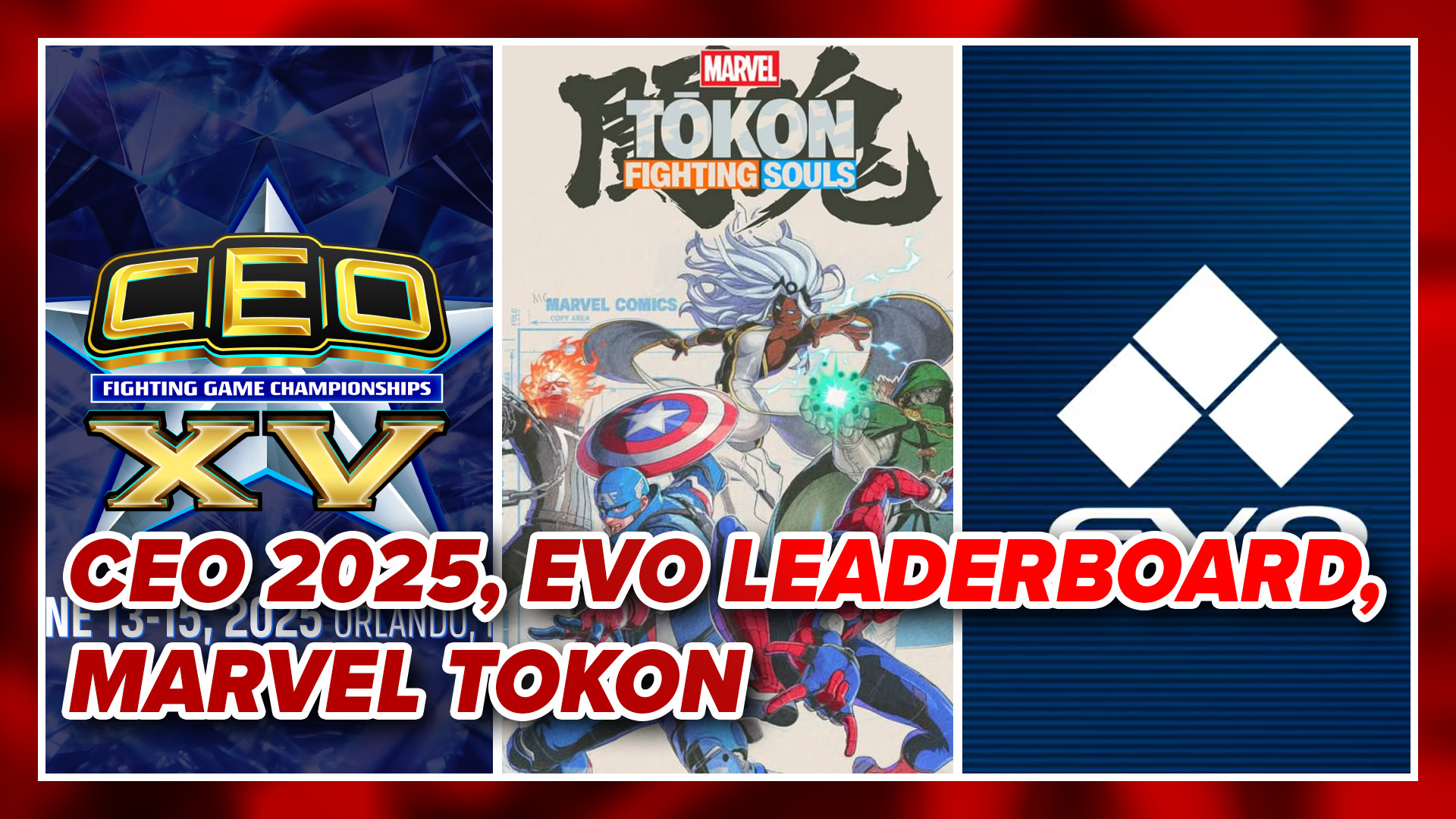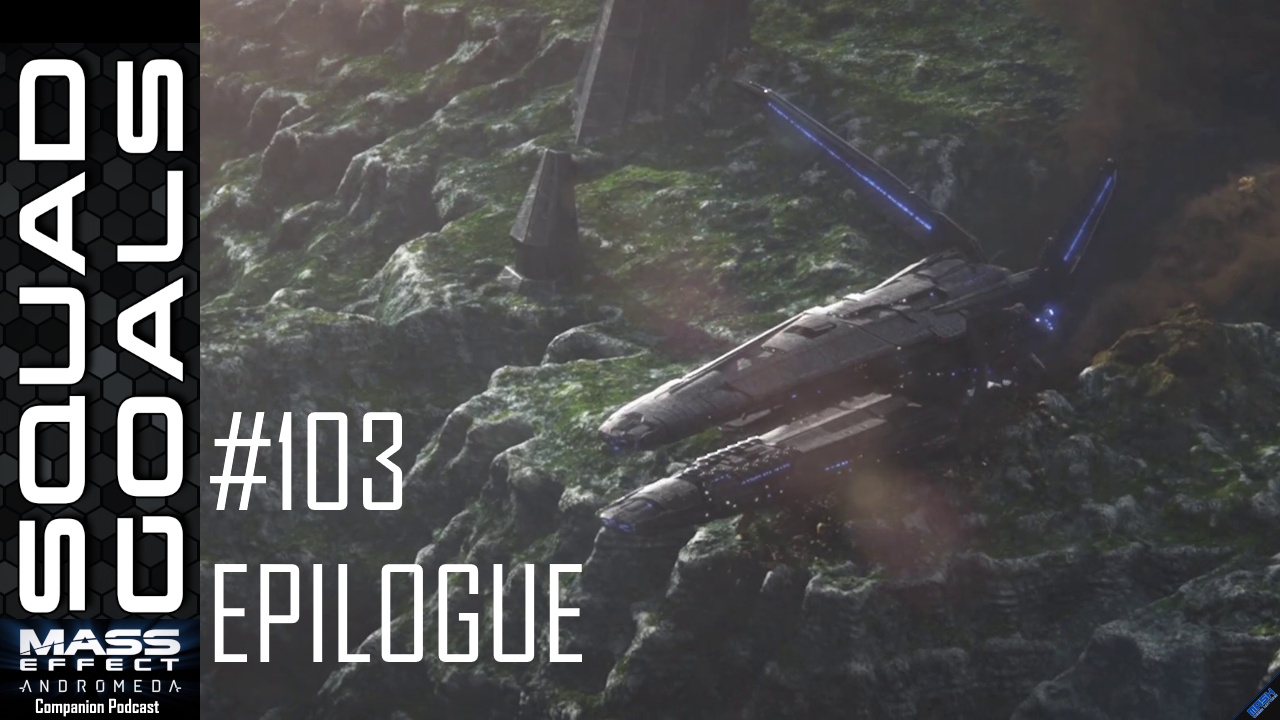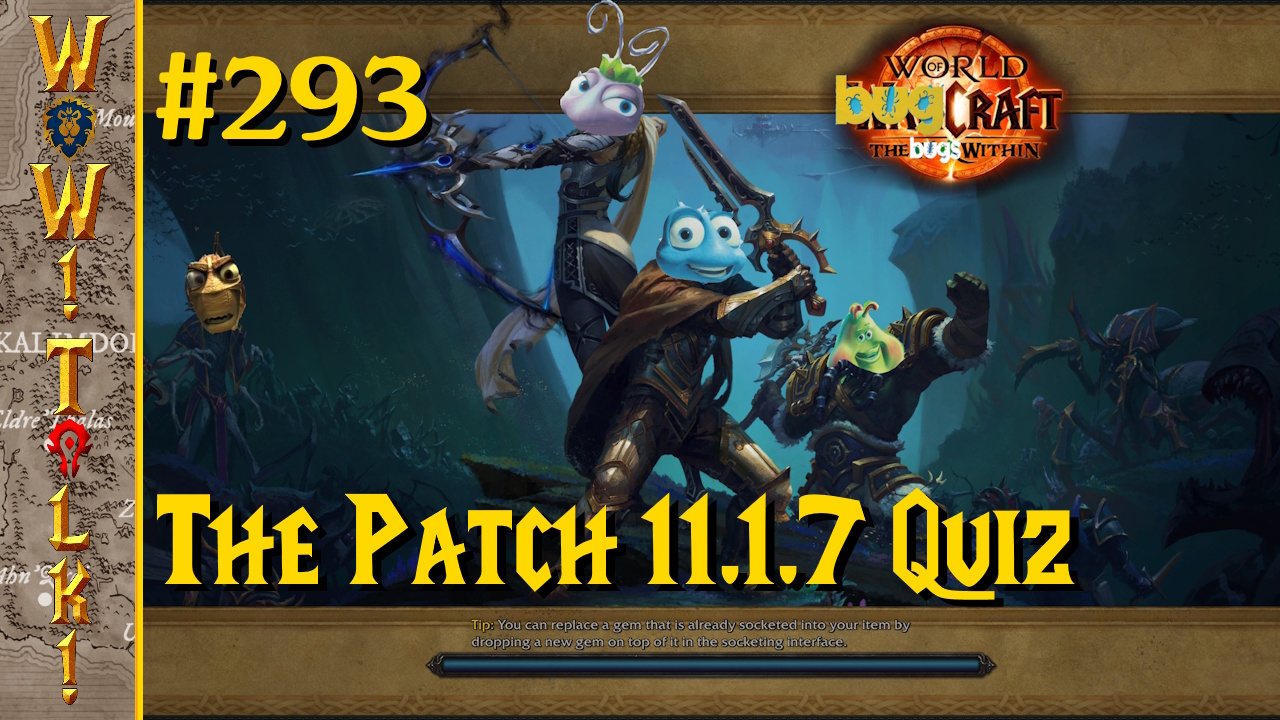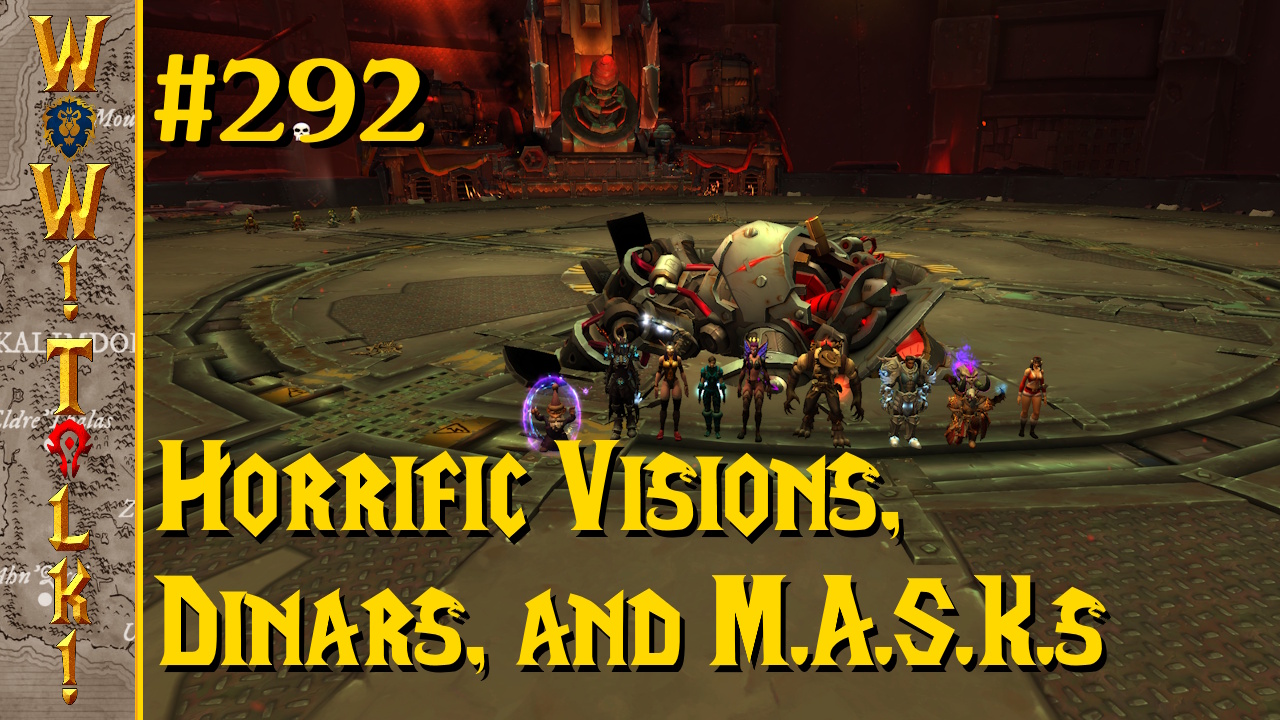
Choice is an illusion in many games. I’ve played a lot of stuff that talked big about how my choices affected the game, and that my input can have a huge impact on how things go. That’s rarely been the case, as it’s just about impossible to make a game where every little action you take can be accounted for. Short of having programmed for thousands of possibilities and endings, it’s just not realistic to expect. Even so, if you can convey the sense that what you’re doing is important – can put some urgency and sense of failure in your decision-making while still keeping your game on track, you can show players a great time and make their input feel valued. Telltale Games has a lot to show developers on that subject, and if you want a fine example, pick up The Wolf Among Us: Episode 1 – Faith.
You may feel you’ve been thrown right into the middle of something when you find yourself speaking to Mr. Toad, a humanoid animal who’s none too happy to find himself talking to you, right at the start of the game. The Wolf Among Us takes place in Bill Willingham’s Fables universe; a world where characters from old fairy tales have had to flee their lands and settle into New York. By using magic and maintaining a low profile, they’ve managed to hide themselves from the general population, and it’s your job as character Bigby Wolf to make sure things stay that way. Mr. Toad had let his magical cover slip, and didn’t seem all that interested in paying for a new one, which was why we weren’t getting along with each other from the start.
I could have been more understanding with him, I suppose. I was given several different dialogue options that all conveyed a different tone, some more gruff and uncaring of his situation and others being more diplomatic and kind. I started off playing nice but stuck to what he needed to do, telling him I understood that costs for the magical disguise (called a Glamour) were high, but that if he couldn’t afford one he would have to go hide out with the other animal Fable characters in a place called the farm. That’s when a humanoid toad told me exactly what I could do with myself and my orders. You haven’t lived until you’ve been told off by a three foot toad in sweat pants.

What I loved about this exchange was how easily it could have gone in another direction. I was given several different dialogue options to go with, and then a short timer appeared. If you’re one of the few who gave it a shot, this might be reminding you of Alpha Protocol, as that game forced you to make quick decisions about a tone of speech in real time. There is no time to think much about what you want to do, and it forced me to either play the game based on gut feelings or based on how I felt the character should play out. On a first run through the game the former will happen most often, which resulted in this neat, organic sensation from the game. I felt like I was making the decisions myself and not because I felt like I should play a certain character type or answer with what I felt was the ‘right’ reply. I went with my instincts, and the game continued along with it.
I knew I screwed up at times, although screwing up might not be what I’d call it. I’d just set myself up to have a hard time with some characters later, as the game noted that ‘Mr. Toad will remember this’ after I came down a little hard on him. As to what that would entail later, I wasn’t sure, although it was enough to make me nervous about future interactions with him. This happened every few minutes as the game moved on, as almost every interaction I had with any of the characters would note that I had affected my relationship with the character in some way. There were many more I had positive and negative responses from, and each time the game warned me how that character would feel about me in the future. It really made me feel like I’d messed up at times, but more importantly, it made me feel like the plot was truly my own. My choices in the game were having an effect, even if I wasn’t sure what it was, and those little messages were always around to remind me of it. When I had to interrogate Mr. Toad a little later about something and he gave me a brutally hard time about it, there was really no questioning as to why.
What also felt right was that the morality of many of my decisions was pretty grey. I was being a pretty good guy to some characters once the game began, offering help in places, but there were points where I had promised to lie for one character to increase my standing with her. I had to actually go through with that lie only moments later, something the game made a note of, and I’m sure it will come back to haunt me in later episodes. Had I made the right decision by helping one character while lying to another? Would it have been more ‘right’ to tell the truth but expose the person who’d begged me to lie for them? I didn’t feel like I was trying to build up points toward being a good or bad person in-game, but rather making decisions on who to ally myself with. It felt less like manipulating a morality system to get an ending or reaction I desired and more like I was actually communicating with human beings, something many games need to take note of.

One thing about this system is that there wasn’t any way to tell what kind of effects my actions have had yet. My situation with Mr. Toad did resolve itself, but most of my other interactions with characters mentioned effects that I didn’t see pan out in this episode. It’s short, though, as the first episode’s only real job is to set everything up for what’s to come, but it also means I can’t reliably say how well this stuff was implemented into the game yet. The game makes it all sound very important by constantly noting how my relationship with some characters is changing, but it’s much too early to see what effects that will have.
Speaking with characters is a heavy focus in the game, and with the dialogue system it felt very natural and fun to do. I really enjoyed the tense feeling I got in some conversations as I looked over my dialogue options, and again, it made me feel more like I was talking with real people than interacting with a system. As an added challenge, if you don’t choose a dialogue option in time, the game will just make you stay silent, and different characters will interpret that in their own way. One character took my quiet for agreement, and the other took it as I was trying to continue an argument. Moving quick and choosing your tones made a game that’s fundamentally about dialogue and really nailed it, making it engaging as a game and interesting from a narrative perspective.
There is some point-and-click stuff for all you people who expect more gameplay from a heavy narrative game, although it’s not exactly complex. Most of it involves poking around the environment looking at stuff, eventually putting together what happened in some crime scenes to the best of your abilities. I picked up a few items, but the game never expected me to do anything weird with them or to experiment with them in any way. It means there’s not much puzzle here for the puzzle-loving types, but I was pretty happy to see no signs of point-and-click logic here. Since I tend to play point-and-click games because I’m looking for a strong story, I was pretty happy with the system only existing to enhance the story through letting me feel more directly involved in the investigations. I won’t lie; getting to do this without pixel hunting or using dozens of items on each other felt pretty great.
There were some solid quick-time events that broke up the action, too (ones that you can fail!). The game periodically had a couple of chase sequences that reminded me of L.A. Noire and Heavy Rain, as I had to chase or subdue some people at points. The physical fights were surprisingly fun, not just asking me to hit the right button but also to aim at or use certain things in the environment. There were moments in the first fight where I got to choose which implement to beat the other guy with, bouncing around things in his apartment complex as if I were playing good ol’ Punisher on PS2. I also had the option of routes while chasing another character around, giving me more choices that almost made me lose the guy I was running after.

What I loved about those quick-time events was that I didn’t feel like they were on rails. The majority of quick-time events just feel like I have to hit the right button to keep a cut scene going, and if I get them all right things go off without a hitch. In this episode, I actually had to make the right choices in some places in order for the game to continue. It wasn’t just a matter of hitting the right buttons, as I also had to make correct choices or risk missing something or failing outright. I felt engaged instead of just looking for the correct button, a feeling I have never really felt since quick-time events started cropping up in games. So, not only has Telltale Games fixed dialogue and morality in games, but also quick-time events. Slow down, guys. You’re making some big budget people look bad.
The look of the game is just great if you loved the comics or comic books in general. A lot of the artwork looks like it’s been lifted straight from the Fables comics, and fans will notice a lot of locations from the series. They’ll probably also notice the similarities in art style, right on down to how the shading has been drawn on background items. The characters don’t quite capture the look of the comics and lean more toward Telltale Games’ signature art style, but they do look good and fit in well with the game. The animal characters look ridiculous when they talk, but not in a ‘they don’t look right’ kind of way, but more that it is downright funny to see weird talking animals saying this stuff. It all looks right and good even if it seems absurd, and is another nice addition to the game.
The voice work sells it nicely as well. The voice actors do convincing jobs of their performances, and have some nice nuance to much of their dialogue. The animal characters kind of steal the show for playing things straight and believable despite being talking frogs and pigs, but the human characters do a great job as well. The closest thing I could say I had to a problem was that there were some sequences where the spoken dialogue was much quieter than it was during other points. The drop in audio seemed to happen whenever I was examining something, which made it doubly annoying as I often really wanted to know what the character was saying about an object. It’s good stuff when you can hear it, though.
Ditching complex point-and-click puzzles in favor of complex relationships with characters was a wise choice. It made the game feel fast-paced and interesting when many episodic games flounder and bore me in their opening chapters. I was dying to know more about the characters and story as each new thing was introduced, and the writers managed to make me develop strong feelings for many characters within a few sentences. The writing is beyond strong, and the game’s focus on it makes it extremely appealing and hard to put down. It didn’t last for very long, but The Wolf Among Us: Episode 1 – Faith packed so much quality game into it that I can’t complain about it at all. That they made me need the next chapter is another indication of how good the game is. These guys excelled at things in a few hours that most games can’t manage over dozens of hours with teams of hundreds.
The Wolf Among Us: Episode 1 – Faith can be purchased from Steam.




